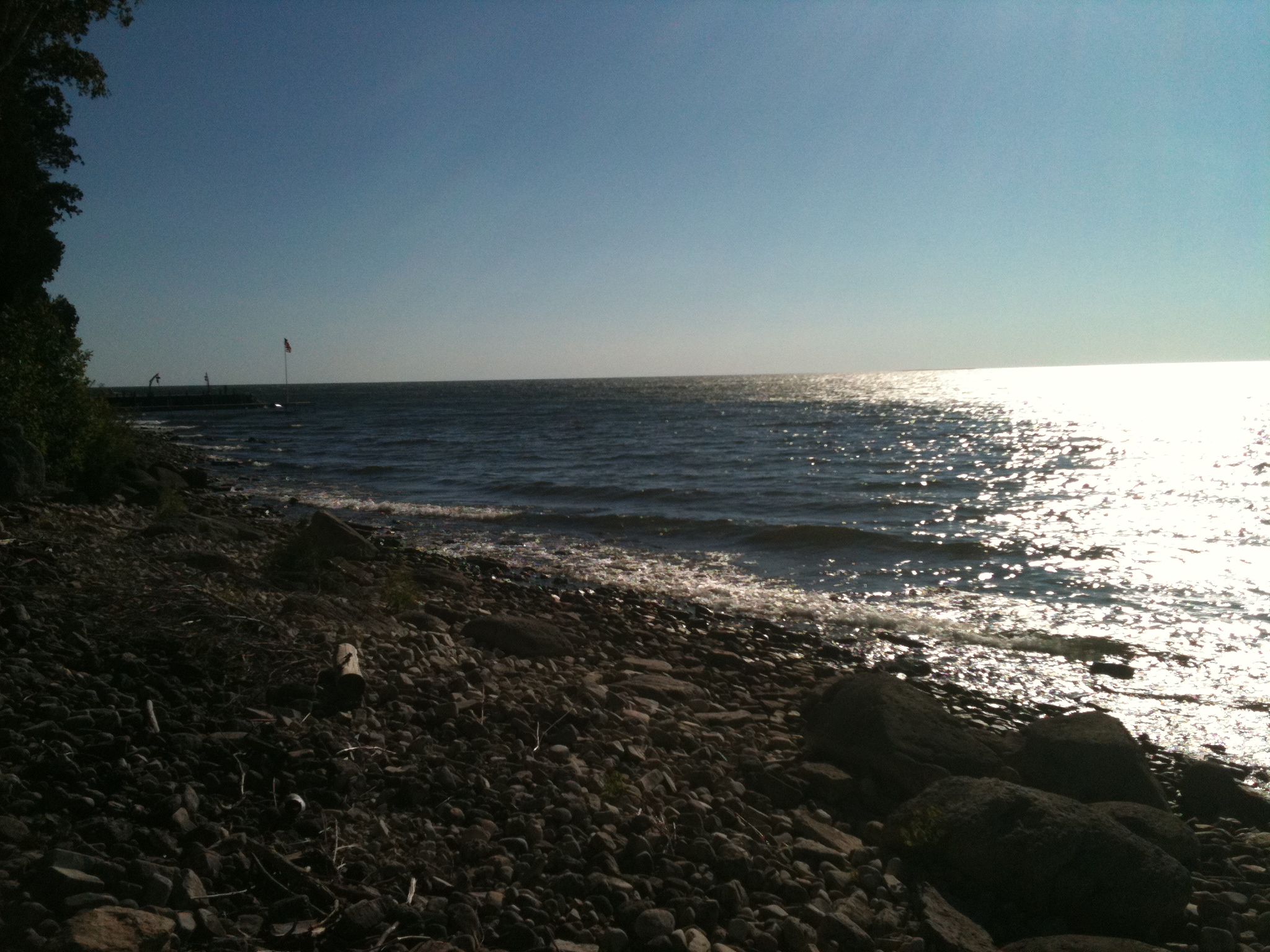Emily Waters Shearer
Cartography
I am a man with a penchant for studying maps
and their narratives trapped in the dimension of border and landmark,
squiggle of river, brushstroke of shoreline.
I quantify canyons and caves
with the tools of a surveyor: compass, prism, pen.
The places I venture implore excavation,
but I cannot extract or draw conclusions against the backdrops
where you women prop your friezes,
where you shudder and quake, where your ground is firm.
This is how we map the world: lines converge in even measure.
Metered footsteps. Steady drumbeats. Logic of Polaris.
Every key a notched fit in the lock for which it was tumbled.
And I stumble to follow the lines drawn out, out beyond
the corners [of your eyes], the stories [of your evers]
the echoing chasms [of your journeyed hearts.]
I am a woman my pockets pregnant with apples.
Studying maps belittles the act of wandering.
As I travel, I mark land and time by absence.
Remember the furniture store, you bought me that chair,
I later painted it blue, the same color on our bedroom walls,
when we framed ourselves by walls. Gone now, that dark encapsulation.
Whatever I pretend to understand about intimacy
I learned from walking the labyrinth – me to you
and tracking back again.
Masses and bodies between us were extant before
the pens of cartographers, the equipment of surveyors
determined their dimensions and contours.
And this is how we commemorate distance.
We circle to the center to discover where we are. Where we are
we find by spiraling outwards.
About This Poem
“Cartography”, like many of my poems, was born not of my own hand or head, but by words spoken in conversation. When people speak, they rarely hear their own poetry. It is the job of the poet to catch those snippets and reign them in, polish them and ornament them and show them off in the luminous light of language.
One day, my husband had been spending a long time looking at a google map of our new neighborhood. He pulled up satellite images and topographical reliefs. In reply to our seven-year old asking why he was poring over all this information, my husband answered, “I am a man who studies maps.” I heard a rhythm and a narrative in these words, and I also heard something deeper, a small key to the difference between us.
Once I set his opening words to paper, I could see that “Cartography” was going to become a dialogue between Man, the map-maker, and Woman, the way-seeker. The two voices in the poem offer a comparison of opposing ways of seeing the world, and of seeing each other.
Two months ago, my husband and I moved with our three kids, one dog, one cat, and 24 years of collected possessions from northern Virginia to the beautiful and mysterious city of Prague in the Czech Republic. I have a terrible sense of direction, and I’ve never been so dependent on maps in my life! It is very interesting to me to see how he and I are affected so differently by the uprootedness, the changes, the novelties and nerve-rattlers and doubts and discoveries of our shared “adventure”.
It is also a daily source of fascination (and, I’ll admit it, frustration) to share a life with a person whose modus operandi is so completely different than mine. Men, at least the men in my life, look for logic. They want to know what makes women tick, what gets them off, what pushes their buttons. Moreover, they want to know WHY. They want quantifiable, consistent, objective reasons for what we do and they want to be able to predict what that might be from one day to the next. But women just don’t think that way. We mark geography by our place in it. We make our mark by figuring out how to establish and maintain connections with others without losing sight of what’s at the heart of ourselves.
Finding one’s way in a new country, a new life, is a bit like the give and take and daily revelation in relationships where two people share one life, but each stumbles through the maze with his or her own characteristic grace. Shaking up everything around me, changing my surroundings and my notions of the way things ought to be is already teaching me valuable lessons about trusting my inner compass and charting my own course on this spinning planet. I may be stumbling, but I like to think I am stumbling gracefully.
That’s what I love about Kim and Dulcie and the entire mission of Minerva Rising. They are championing this very theme – helping women navigate, through art, the somewhat choppy and intimidating waters of the world we inhabit. Minerva Rising provides a safe port of call – a place to express our voices and our art, a place to grow, to get under the world’s skin by putting words on a page and sending those words out to take wing and find a home in the minds of fellow writers and readers and travelers, cartographers all of us in our own right. So, map on, dear poets and storytellers, essayists and playwrights, artists and creative minds. Map your world and write what you discover.



I used to say I liked a poem simply if I understood it. Your poetry is an ingredient in my wanting more. I am moved by the dance of the map maker and and the way-seeker. By the energy between How to do It and Why We Would Bother. Thanks, Emily, I like it a lot.